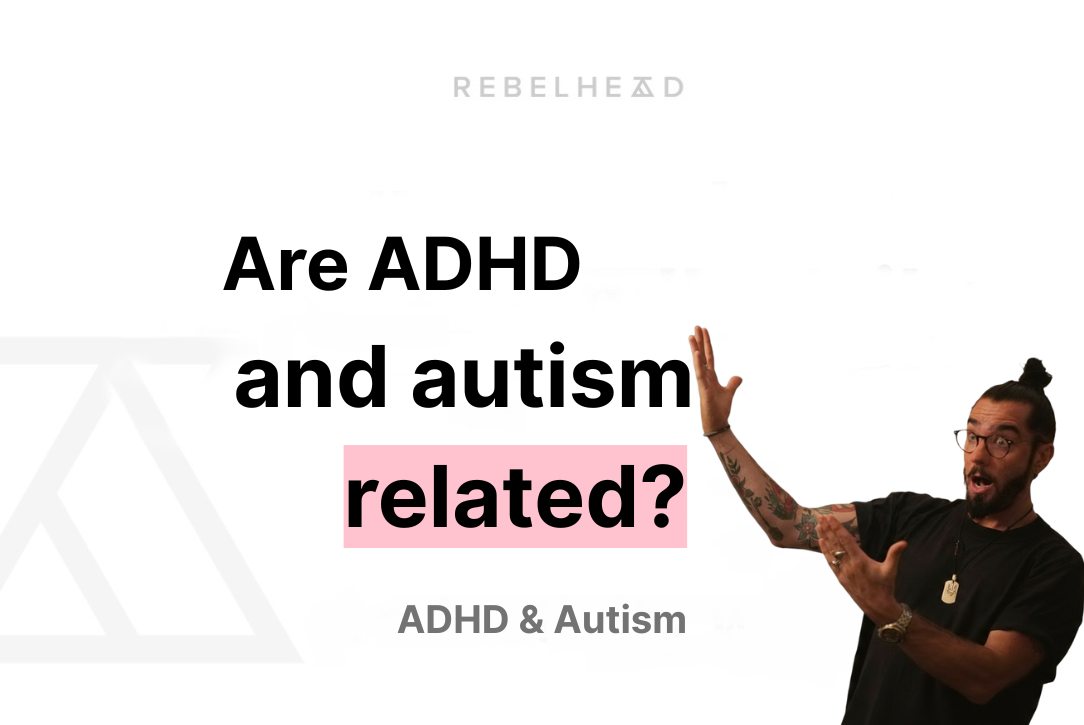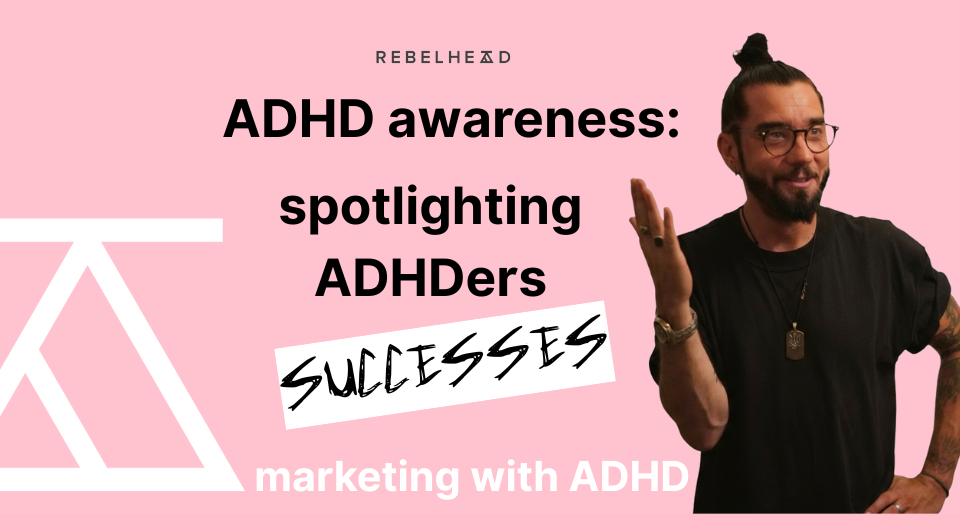For decades, ADHD has been framed as a deficit, a disorder that needs to be “managed.” But when we look at the characteristics that define great leaders, marketers, innovators, and entrepreneurs, the overlap with ADHD traits is striking. Risk-taking. Creativity. Restless energy. Relentless curiosity. An ability to hyperfocus on big ideas.
So maybe it’s time to reframe the conversation. ADHD isn’t simply a clinical condition. In many contexts, it’s a leadership trait, even if companies don’t call it that.
The Myth of the “Broken Brain”
In traditional workplaces, ADHD has been reduced to stereotypes: the fidgety employee, the latecomer, the disorganised one. But this narrative misses the bigger picture. The same “disruptions” that make ADHDers struggle in rigid environments can become superpowers in leadership.
- Impulsivity? Recast it as bold decision-making.
- Restlessness? A drive to innovate and keep pushing forward.
- Hyperfocus? The ability to dive deeper than most into solving complex problems.
- High energy? Fuel for motivating teams and leading by example.
When viewed through this lens, ADHD stops looking like a liability and starts looking like a leadership accelerator.
ADHD and Entrepreneurship: The Evidence
Multiple studies suggest a link between ADHD and entrepreneurial activity. Adults with ADHD are significantly more likely to start their own businesses than those without. Why? Because entrepreneurship values exactly the qualities that corporate structures often punish.
Consider:
- The willingness to take risks and experiment.
- A tolerance for uncertainty and rapid change.
- Creative problem-solving that thrives outside rigid processes.
- A passion-driven focus that ignores limits when pursuing goals.
In fact, some of the world’s most successful founders and visionaries have spoken openly about their ADHD traits, even if they don’t always use the label. The same qualities that can frustrate in a 9-to-5 job become invaluable when carving a new path.
ADHD in Corporate Leadership
It’s not just entrepreneurs. ADHDers also excel in corporate leadership roles, especially when companies support them. Leaders with ADHD often:
- Spot patterns others miss. Their divergent thinking allows them to connect ideas across disciplines.
- Inspire teams with vision. ADHD leaders often dream big and articulate missions that energise others.
- Thrive under pressure. The adrenaline of deadlines can sharpen focus and decision-making.
- Challenge the status quo. Rather than conforming, they question outdated systems and drive change.
These are not minor advantages. In a business landscape defined by rapid disruption, uncertainty, and innovation, ADHD leadership traits are perfectly suited to the times.
The Fear of Disclosure
Yet despite this potential, many leaders with ADHD hide their diagnosis. Fear of stigma, as we explored in earlier discussions, keeps ADHD a secret in boardrooms. Executives worry disclosure will make them seem unreliable or “unfit.”
This silence is costly, both personally and professionally. Without disclosure, leaders may not get the support that could amplify their strengths. And organisations miss the chance to model inclusivity from the top down.
Reframing ADHD as a leadership asset, not a liability, can change that.
Rebel Leadership: A New Paradigm
This is where platforms like Rebelhead.com play a vital role. Rebelhead challenges traditional career narratives by spotlighting unconventional thinkers, marketers and leaders who don’t fit the mould, exactly the kind of voices ADHDers represent.
By celebrating difference as a driver of success, Rebelhead demonstrates that rebellion against rigid norms isn’t a weakness. It’s leadership in its rawest form. And ADHD traits, far from being “symptoms to control,” are the fuel behind this rebellious leadership.
Redefining What Companies Value
If ADHD traits are leadership traits, the implications for workplaces are profound. It means companies need to rethink how they identify, nurture, and reward talent. Instead of filtering out non-conformity, they should be asking:
- Who on our team sees opportunities others overlook?
- Who is willing to make bold moves and disrupt “business as usual”?
- Who brings energy, vision, and creativity even if it doesn’t fit into neat processes?
These are leadership qualities, not liabilities.
How Organisations Can Harness ADHD Leadership
Here are practical ways businesses can unlock the value of ADHD leadership traits:
- Create Space for Visionary Thinking
Give ADHD leaders room to focus on high-level strategy and innovation, rather than bogging them down in minutiae. - Support with Operational Partners
Pair visionary ADHD leaders with detail-oriented colleagues who thrive on structure. This balance is powerful. - Embrace Flexibility
Allow leaders with ADHD to work in ways that maximise focus, whether that’s flexible hours, task batching, or unique project management tools. - Normalise Neurodiversity in Leadership
Encourage leaders to share their ADHD stories, modelling disclosure from the top and dismantling stigma across the organisation. - Celebrate Outcomes, Not Processes
Focus on results delivered rather than traditional measures of “professionalism” that penalise ADHD traits.
The Future Belongs to the Rebels
In a rapidly changing world, companies don’t need more of the same. They need leaders who can adapt quickly, innovate boldly, and inspire others through vision and energy. That’s exactly what ADHD leaders bring to the table.
The time has come to stop seeing ADHD as a disorder that holds people back. Instead, we must recognise it for what it often is: a collection of traits that fuel leadership, creativity, and resilience.
Or as Rebelhead might put it: the future doesn’t belong to those who fit the mould. It belongs to the rebels.
ADHD is not a flaw to hide but a trait to harness. The impulsivity, creativity, energy, and passion that come with ADHD are the same traits that drive entrepreneurs and corporate leaders to transform industries.
So next time you admire a visionary leader, ask yourself: are you seeing charisma and courage, or are you seeing ADHD by another name?
Because ADHD is a leadership trait. They just don’t call it that.
Links:
Popular Articles:
Shocking facts about ADHD: in the workplace
People with ADHD are about 60% more likely to be fired




